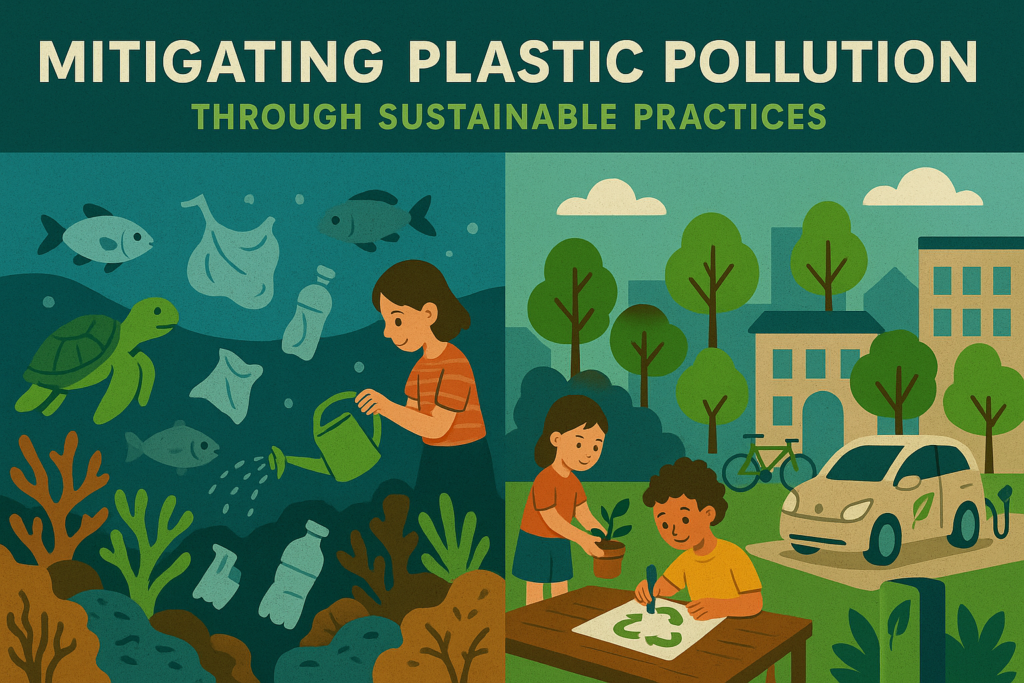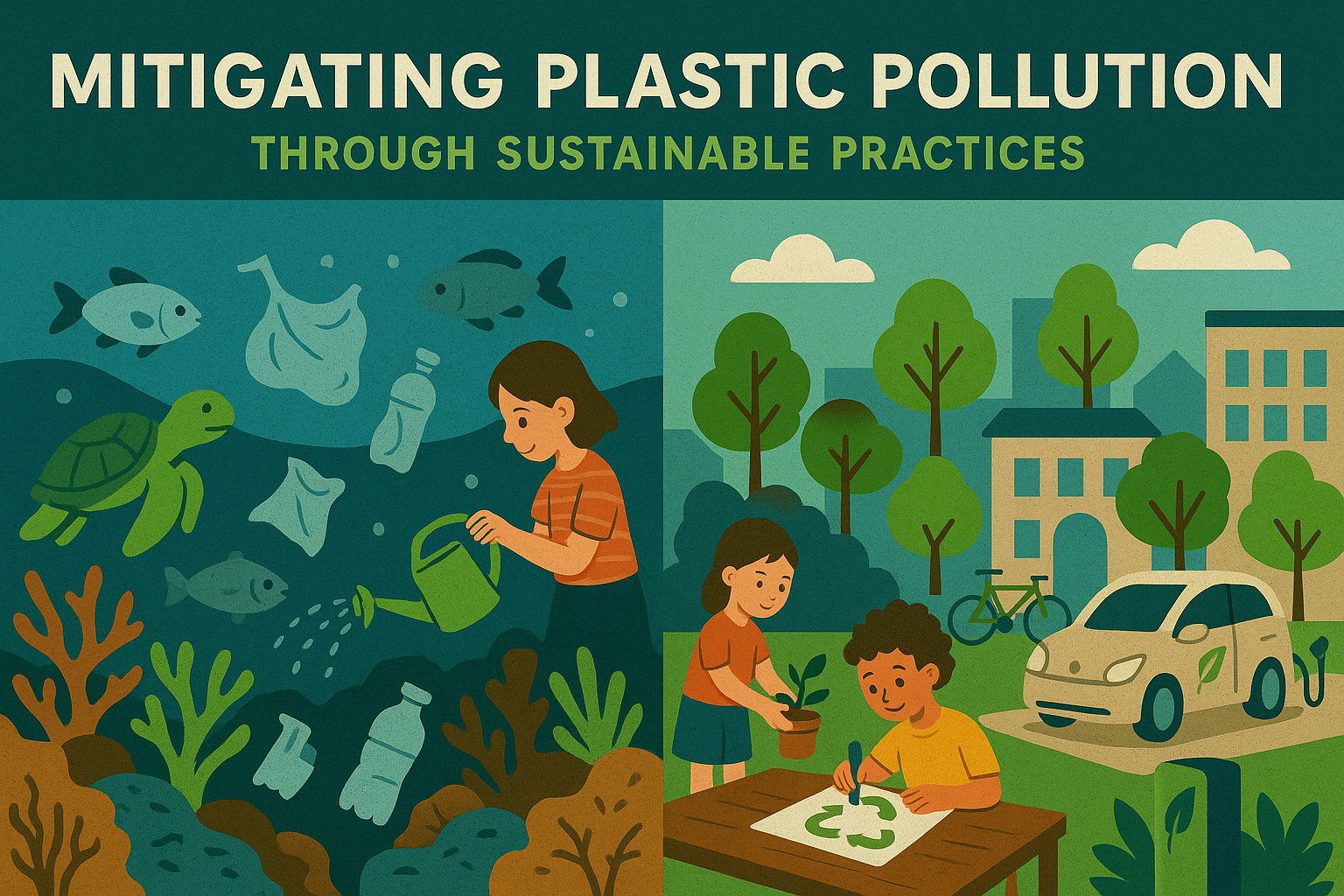
The exponential growth of plastic production and consumption has triggered a global crisis, necessitating a multifaceted approach to mitigate the deleterious effects of plastic pollution on ecosystems, human health, and the environment. To effectively address this issue, a paradigm shift towards a circular economy is essential, where plastic waste is minimized, reused, and recycled. This approach requires a fundamental transformation in the way we design, produce, and consume products, promoting sustainable consumption patterns and reducing plastic usage. A circular economy can be achieved through the implementation of closed-loop production systems, designing reusable products, and enhancing waste management infrastructure. Advanced recycling technologies, such as chemical and mechanical recycling, can also play a crucial role in recovering value from plastic waste. The growing concern over plastic waste has sparked innovation in various sectors. Furthermore, the development of biodegradable materials and bioplastics can reduce plastic pollution, while science-driven policy frameworks can support the implementation of sustainable practices. By embracing these solutions, we can mitigate the environmental impact of plastic use and foster a more sustainable future. Stakeholder engagement, education, and awareness-raising efforts are also essential in driving innovation, promoting behavioral change, and fostering a culture of sustainability. By working together, governments, industries, academia, and civil society can reduce plastic waste, promote sustainable practices, and protect the environment for future generations. Ultimately, mitigating plastic pollution demands a concerted effort from all stakeholders, adopting a paradigm shift in sustainability to foster a more resilient and regenerative economy. This paradigm shift can yield numerous benefits, including reduced plastic waste, conservation of natural resources, protection of fragile ecosystems, and significant economic gains through innovation, job creation, and sustainable industry growth. By embracing eco-friendly practices, promoting a culture of sustainability, and driving systemic change, we can effectively mitigate the devastating effects of plastic pollution, safeguard biodiversity, and pave the way for a healthier, more resilient planet for future generations. Moreover, this transition can enhance community engagement, foster global cooperation, and inspire new technologies, ultimately leading to a more sustainable, equitable, and thriving world where economic progress and environmental stewardship go hand in hand.
As we adopt sustainable practices, we pave the way for a healthier planet and a prosperous future, where clean air, pristine waters, and thriving ecosystems become the norm, not the exception. By working together, we can create a world where economic growth, social equity, and environmental stewardship harmonize, ensuring a bright and resilient future for all. In this future, innovation flourishes, communities thrive, and the beauty of nature is preserved for generations to come, inspiring wonder, awe, and a deep appreciation for the planet we call home.
Authored By: Darpan Bajaj and Anuradha
Aplinka Solutions & Technologies Pvt. Ltd., (QCI- NABET Accredited Organization), Noida, Uttar Pradesh (U.P.), India

